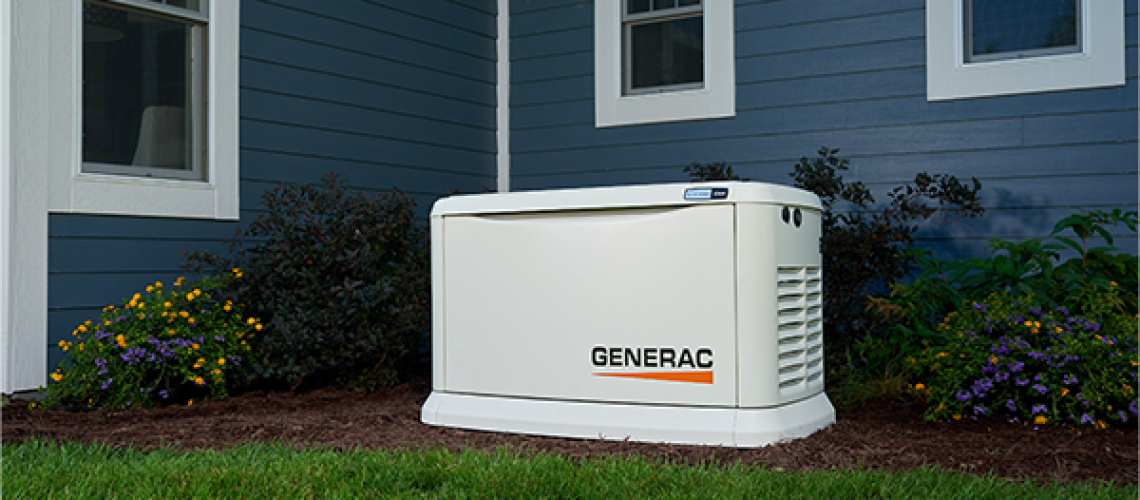What is a standby generator?
Essentially, it’s a type of home generator that’s installed on your property. Unlike portable generators, these products are installed in one fixed location. They’re also a lot larger than portable ones, capable of providing you with enough wattage to power your entire home. The whole purpose of a standby generator is to remain on standby in case it is needed. When you experience a power outage, your generator comes to life and offers an alternative source of electricity for your home.
As you can imagine, these generators are extremely useful and can be highly beneficial. If you live somewhere that often receives power outages, they are an essential purchase. However, there are ongoing concerns surrounding the process of getting a whole-home generator right now. It’s harder than it’s ever been before, primarily thanks to an increased demand for products like this.
Why are standby generators so popular right now? If you carry on reading, we’ll reveal a few key reasons lots of people are lining up to buy generators, which explains why you should also get in line as soon as possible.
An old National Power Grid
Unfortunately, we live in a country with one of the oldest and most outdated power grids in the world. In fact, the US suffers more power outages than almost any other developed country in the world. It’s rather embarrassing for the people in charge of this, and the issue stems from the technology used throughout the grid.
The infrastructure is so old and outdated that it doesn’t take much for things to cause blackouts. For instance, adverse weather conditions are prone to causing outbreaks in many areas of the country. If you live somewhere that experiences a tornado or hurricane season, you are likely to see blackouts every other week. Even periods of torrential rain can disrupt the national grid and lead to blackouts.
This happens more and more as the grid gets older and older, prompting many residents and business owners to find preventative solutions. Naturally, the attention turns to standby generators. People are starting to realize how beneficial they are in preventing blackouts for individual properties. As such, the demand for them rises, putting a strain on suppliers and leading to lines of people looking to get one.
Cyber threats
In addition to issues with the age of the national grid, there’s also the looming worry of cyber threats. These days, it is entirely possible for a cybercriminal to hack into the national grid and turn everything off. In fact, it is believed that hackers did indeed hack into major utility rooms across the country, where they could’ve shut down the power if they wanted.
Again, people are being made aware of these threats – and the lack of defense offered by the government. It will take time for the right cybersecurity measures to be put in place, and the thing with cyber threats is that they can change and adapt over time. Our government might have a system in place that stops hackers right now, but eventually, the hackers will learn how to get around it. So, we’re constantly living in the fear that the grid gets hacked and we are without power for days, weeks, or months.
With a backup generator, there’s no need to worry. Even if the grid gets hacked, it won’t affect you. You have a backup source of power to ensure your home can do everything you need it to do until the situation is resolved. Therefore, it’s no surprise that lots of people want backup generators, hence it is so hard to get them.
The ongoing pandemic
The above concerns have been going on for some time. But, in the last two years, another potential issue has arisen. The ongoing pandemic has changed so much about the world, and it has also impacted the home generator industry. Like most industries, there have been issues with supply chains because of the pandemic. Generator manufacturers need parts from certain countries, and they might not have been able to get them for many months. This means it’s harder than ever to keep up with the growing demand for the products.
As a consequence, we’re in a situation where there’s a high demand for standby generators, but the supplies are lower than they’ve ever been. It’s no surprise that it is challenging for people to purchase a generator these days.
Plus, there are delays with government processes as well. Part of getting a standby generator means you need to get a permit to install it on your property. Unfortunately, with people self-isolating and the government has a backlog of things to process from 2020 and 2021, getting a permit can take longer than expected.
How can you get your hands on a standby generator?
The bottom line is that whole-home generators are extremely beneficial for your household. When you have one on your property, you’ll enjoy the following:
- A backup power source that kicks in as soon as you need it
- Protection from power surges during blackouts
- The ability to still use essential appliances in your home – like sump pumps, medical equipment, cooking appliances, electrical heating systems, etc.
With all of this in mind, you’re probably wondering how you can get your hands on a standby generator right now. At Generator Supercenter of Inland Empire, we strongly advise that you get in line right away. We sell a variety of generators of different sizes and prices, and we’re experts in generator installation. The waiting time for your generator can vary, which is why we are recommending that all customers come to us with as much information as possible. This includes:
- Where your home is located
- The size of your home
- The type of home you have
- Your budget
From here, we’re able to figure out the best generator for your property, as well as doing some research into the local planning regulations in your area. This speeds up the entire process as we don’t have to spend time asking questions to get all of this information. We’ll work as quickly as possible to acquire your generator and install it on your premises. If you’re interested in protecting your home from power outages of any kind, get in touch with us today for a free estimate.




